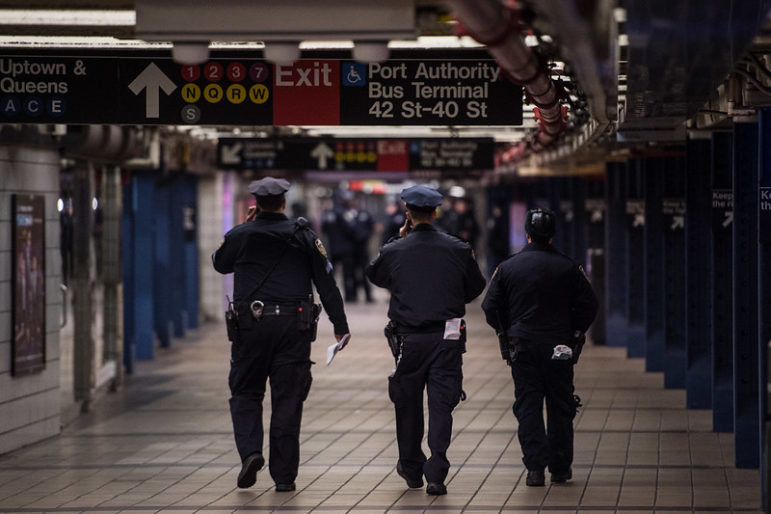
Michael Appleton/Mayoral Photography Office
I am the proud mother of a young man who has lots of promise and potential and also struggles with mental health concerns. I have seen over and over again the ways that an inadequate mental health system has failed him, and where law enforcement has stepped in to do a job they should not be doing.
This year, New Yorkers asked the mayor and City Council to recognize that public safety does not come from law enforcement—it comes from making sure people have resources to meet their needs. We asked them to pass a budget based on that vision of public safety, and they failed us.
The budget approved last week exempted police from the hiring freeze behind applied to other city agencies, while cutting funding for developing supportive housing, and for other crucial human services. The approved budget also shows the mayor’s plans to continue the failed system of using police to respond to people experiencing mental health crises. That arrangement has terrorized my family, and countless others.
On August 25th last year, my son was experiencing a mental health crisis, and I called 911 to ask for medical attention. When I saw police officers arrive along with emergency medical services, I was concerned. I know the tragic stories of parents who have called for help during times of crisis, only to have NYPD show up and murder their sons. Because I have learned from those tragedies and those parents’ organizing, I refused to let the police enter the house. Thankfully, my son was actually calm by the time they arrived. But the police insisted that they still needed to take my son in. My son then heard me pleading with the police as they pinned me to the ground and arrested me, and so they could enter the house. The police then grabbed my son by his neck and dragged him out of the apartment. I was held at the 103rd Precinct overnight, and charged by the Queens District Attorney with obstructing governmental administration. After six months of pressuring me to take a plea, Melinda Katz finally dropped the charges.
Though August 25th was a day I will never forget, it was not the start of my son’s interaction with the criminal justice system. Instead of offering resources to the young people in my neighborhood, the city has offered policing, which led to my son getting arrested, pressured into a plea deal, put on probation, and arrested again by overzealous police for a crime he did not commit. Because he was on probation, he was immediately remanded to “the Boat”—a miserable jail barge in the Bronx where he was left to sleep on the floor in the intake area for three days. Never once through this process was he offered the competent trauma-informed care that could actually keep him healthy and stable. Instead, he was subjected to arrest and incarceration, and is only more traumatized today.
This spring, on WNYC, the mayor defended his choice to involve NYPD in enforcing social distancing by saying that “the NYPD is in every neighborhood…there’s no parallel in other agencies of that kind of reach and that ability to be present.” That is exactly the problem. Because the mayor, and mayors and governors and other electeds before him, have for so long failed to adequately fund the public health systems and social service infrastructure that should have a far greater capacity and presence than the NYPD, we are left to rely on law enforcement to respond to challenges they will never be equipped to address. New Yorkers have seen the devastating and sometimes deadly consequences of that approach, but the mayor chose to double down on that strategy.
My family—and families like mine all over this city—deserve to be able to call for help and actually get it. My son deserved a school system that offered him counselors and services to respond to behaviors that stemmed from trauma. When my son has a mental health crisis now, I go out to sleep in my car, because a call for help could involve the NYPD, and I can’t risk that.
As New Yorkers recover from the trauma of COVID-19, we could have focused our resources on strengthening our social safety net. Instead, the mayor plans to offer our communities more of the same. Somehow, it seems that our elected officials still haven’t really heard us, but we’ll continue organizing until they do, and until our communities get the investments and resources we’ve always deserved.
Peggy Herrera is an advocate for mental health treatment, a member of JustLeadershipUSA, a leader in the #CLOSErikers – #buildCOMMUNITIES campaign, and a counselor for justice-involved youth.


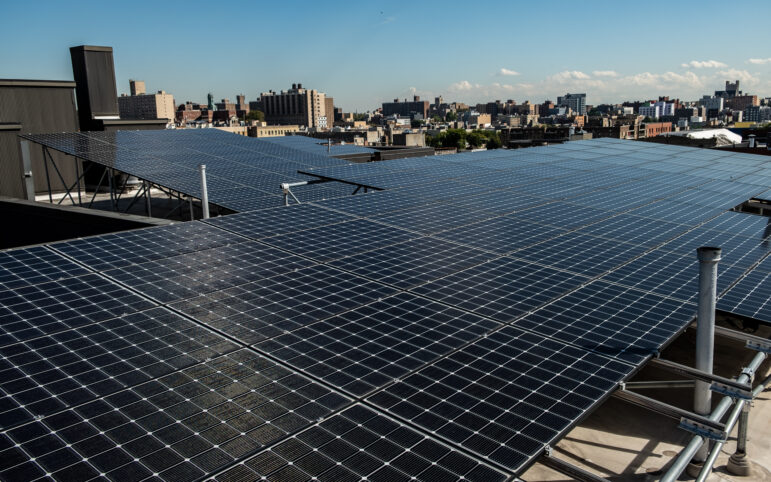
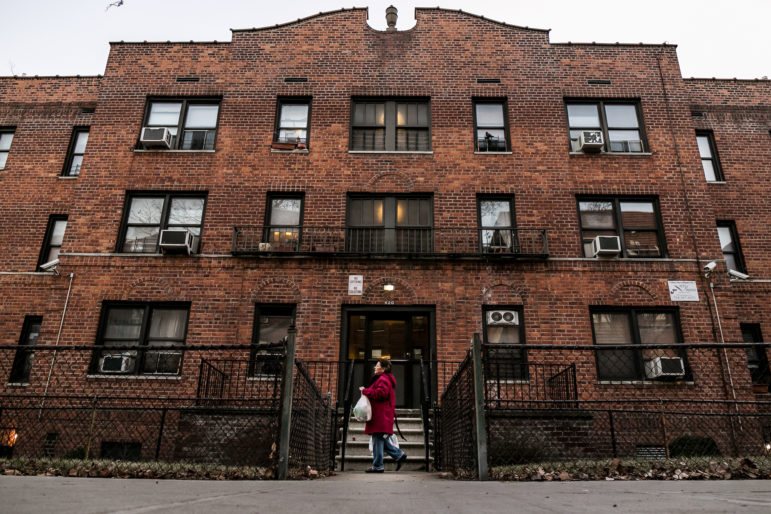
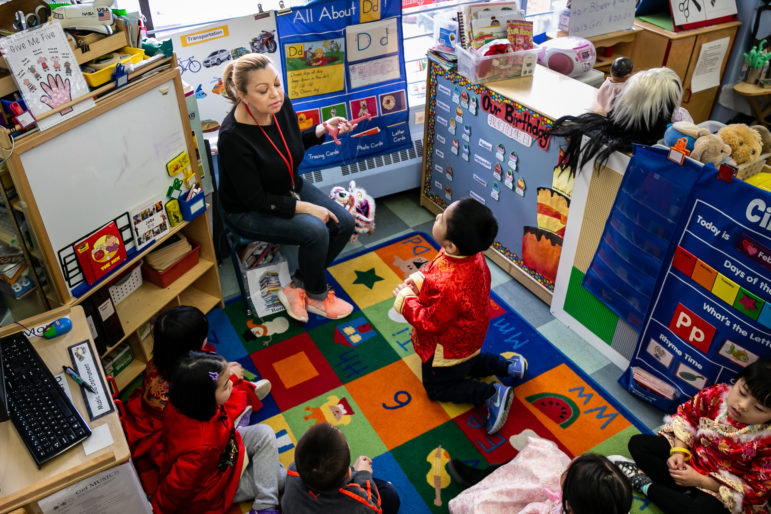
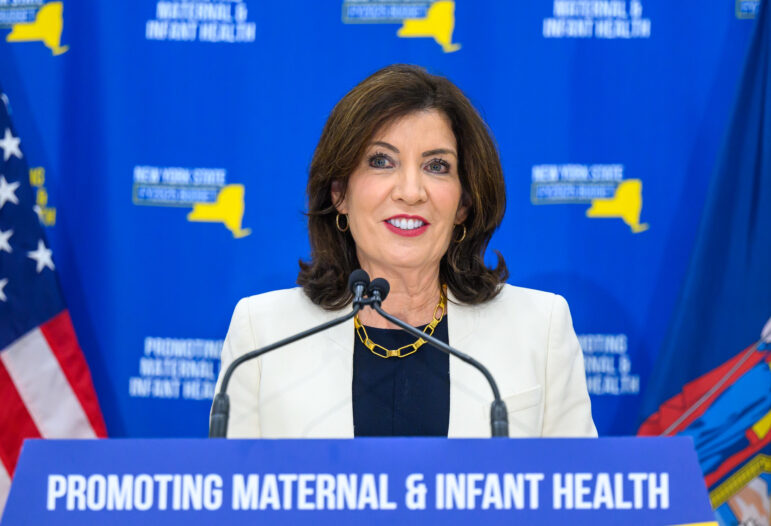


2 thoughts on “Opinion: NYC’s Budget Does Not Make Policing Safer for those with Mental Illness”
This is great. What you are asking is so needed and there are many of us advocates out here that will certainly take a stand for, Response to Mental Health Crisis by those who are equipped to deal with those who need help. Not
encounters with the police, Not incarceration, not Mental Health wards. We need alternative intervention and prevention; community intervention by; Peers, Social Workers, Psycholigists. We need; Respite sites and Housing (not shelters), Educational Programs, Back to work initiatives. This will build up communities. Not tare them down.
This is an extremely powerful and moving piece. I know firsthand the experience of being forced to deal with the police when I was experiencing a psychotic episode in my apartment in Brooklyn 2 years ago. For a person who lives with mental illness, seeing cops enter her apartment in the very midst of being delusional was traumatic on so many levels.
I still cry when I reflect back and share my experience. I am a peer specialist and I have extreme empathy for all of us “crazy people.” We deserve to be treated with respect and dignity, not be traumatized at the hands of a police force that has no idea what to do with a person who is experiencing a psychotic event. But then again, no human being, regardless of whether they live with a mental illness or not, deserves to be traumatized by cops. It is grossly unfair and an inherent betrayal of the civil society that the US is supposed to embody (but unfortunately fails on so many levels).